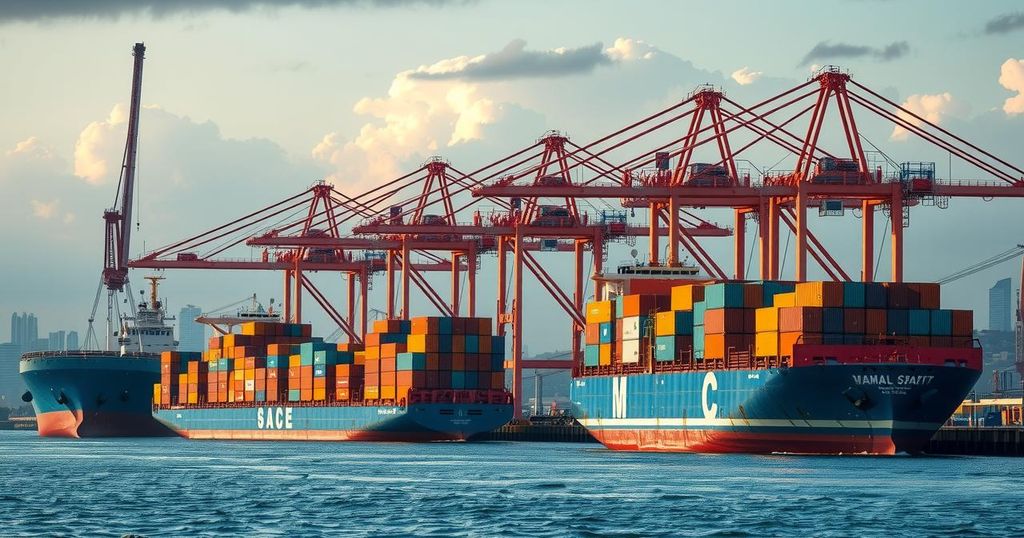Trump to Impose 25% Tariffs on Imports from Canada and Mexico

President Trump has announced 25% tariffs on Canadian and Mexican imports starting February 1, citing border security and trade deficits. Further tariffs on China are also under consideration due to fentanyl-related issues. Canada and Mexico plan to retaliate against these tariffs, indicating escalating trade tensions among the nations involved.
U.S. President Donald Trump has announced the implementation of 25% tariffs on imports from Canada and Mexico, effective February 1. The President indicated that he has yet to finalize whether oil imports would also be subject to these tariffs. Trump’s rationale for this decision is linked to concerns regarding undocumented migration, fentanyl smuggling, and trade imbalances with these neighboring countries.
Additionally, President Trump expressed intentions to introduce new tariffs on China, previously suggesting a 10% rate, although specifics remain undisclosed. He emphasized the detrimental impact of fentanyl shipments from China, asserting that it contributes significantly to the opioid crisis in the U.S., necessitating further trade measures against China.
In response to escalating tariff threats from the U.S., China has emphasized the need for cooperative solutions to trade disputes. Ding Xuexiang, China’s Vice Premier, addressed the World Economic Forum, advocating for a balanced resolution to avoid escalation into a trade war. Both Canada and Mexico have indicated they will retaliate against U.S. tariffs with their own countermeasures.
Tariffs function as an import tax, increasing the price of foreign goods to motivate consumers to purchase local products, thereby supporting domestic economies. The proposed tariffs are a continuation of Trump’s previous trade strategies, which have already affected U.S. imports from China significantly since 2018.
The topic of tariffs on imports is rooted in international trade policy, where governments impose taxes on foreign goods to protect domestic industries. Tariffs can sometimes lead to trade wars, resulting in reciprocal measures by affected nations. The U.S. has frequently engaged in modifying tariffs, particularly under Trump’s administration, which often focuses on trade deficits and illegal immigration as justifications for these economic strategies. This situation illustrates the complexities involved in global trade dynamics, emphasizing the interconnected nature of economies.
In summary, President Trump is set to impose substantial tariffs on imports from Canada and Mexico as of February 1, citing border security and trade deficits as primary motivations. His administration is also considering additional tariffs on China concerning the fentanyl crisis. Both Canada and Mexico have expressed intentions to respond to these measures, underscoring the potential for heightened trade tensions in North America and beyond.
Original Source: www.bbc.com








